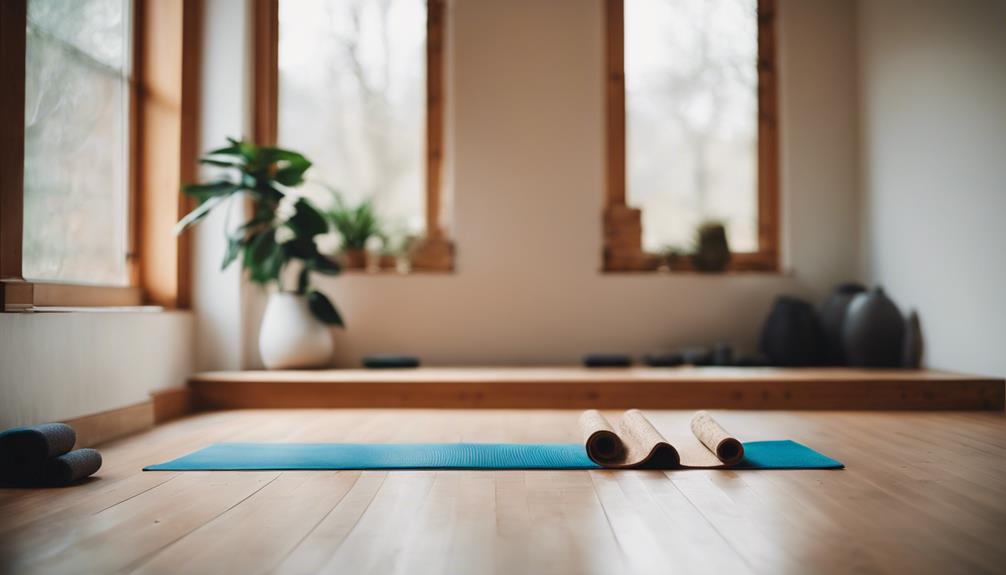Anxiety is a common mental health challenge affecting millions of individuals worldwide. As people seek natural and holistic methods to manage their anxiety, yoga has emerged as a popular practice. This article delves into the question: does yoga help with anxiety? We will explore the connection between yoga and anxiety relief, the science behind its benefits, and practical tips on incorporating yoga into your daily routine for enhanced mental well-being.
Understanding Anxiety: A Growing Concern
Anxiety disorders are characterized by excessive worry, fear, and nervousness that can interfere with daily life. According to the World Health Organization (WHO), anxiety is one of the leading mental health issues globally. Symptoms may include restlessness, fatigue, difficulty concentrating, and physical manifestations like increased heart rate and muscle tension. While traditional treatments such as therapy and medication are effective for many, a growing number of individuals are turning to complementary practices like yoga to alleviate symptoms and promote mental balance.
The Mind-Body Connection: How Yoga Works
Yoga is a holistic practice that combines physical postures, breathing exercises, and meditation to promote overall well-being. The mind-body connection is central to yoga, as it encourages practitioners to be present and mindful. This focus on the present moment can help reduce feelings of anxiety, as individuals learn to observe their thoughts and feelings without judgment. By promoting relaxation and self-awareness, yoga can help manage the physiological responses associated with anxiety, such as the fight-or-flight response.
Scientific Evidence: Research on Yoga and Anxiety
Numerous studies have explored the efficacy of yoga as a therapeutic tool for anxiety. Research published in reputable journals indicates that yoga can significantly reduce anxiety levels among participants. For instance, a meta-analysis of randomized controlled trials found that individuals who practiced yoga experienced reduced anxiety symptoms compared to those who did not. Additionally, yoga has been shown to lower cortisol levels, the hormone associated with stress, further supporting its role in anxiety management. These findings highlight yoga’s potential as a complementary approach to traditional anxiety treatments.
Stress Reduction Through Breathing Techniques
One of the essential components of yoga is pranayama, or breathing exercises. These techniques focus on controlling breath and are vital in calming the nervous system. Deep, intentional breathing can activate the parasympathetic nervous system, promoting relaxation and reducing the body’s stress response. When practicing yoga, individuals can learn various breathing techniques, such as Ujjayi breath or alternate nostril breathing, which can be employed outside of yoga sessions to manage anxiety in everyday situations.
The Role of Mindfulness in Yoga Practice
Mindfulness is a core principle of yoga that emphasizes being present and fully engaged in the moment. This practice encourages individuals to acknowledge and accept their thoughts and feelings without judgment. Research suggests that cultivating mindfulness can help reduce anxiety and improve emotional regulation. By incorporating mindfulness into your yoga practice, you can develop a greater awareness of your mental state, which can empower you to manage anxiety more effectively.
Creating a Yoga Routine for Anxiety Relief
Establishing a regular yoga routine can significantly enhance its benefits for anxiety. Beginners can start with short sessions, gradually increasing the duration as they become more comfortable with the practice. Focus on gentle styles of yoga, such as Hatha or Yin yoga, which promote relaxation and stress relief. Incorporate poses that are known to alleviate anxiety, such as Child’s Pose, Legs-Up-the-Wall Pose, and Savasana (Corpse Pose). Additionally, consider joining a local class or following online sessions to benefit from guidance and community support.
Integrating Yoga into Daily Life Beyond the Mat
While practicing yoga on the mat is beneficial, integrating its principles into daily life can further enhance its effects on anxiety. Consider incorporating mindfulness into everyday activities, such as eating, walking, or even during work tasks. Practicing gratitude and positive affirmations can also help shift your mindset and reduce anxiety. By making yoga a holistic part of your lifestyle, you can create a more balanced and peaceful state of mind.
Conclusion: Embracing Yoga as a Tool for Anxiety Management
In conclusion, the question of whether yoga helps with anxiety is met with a resounding yes. The blend of physical movement, breath control, and mindfulness in yoga provides a unique and effective approach to managing anxiety symptoms. While it may not replace traditional treatments, yoga can serve as a valuable complementary practice that promotes mental wellness. By incorporating yoga into your life, you can cultivate a greater sense of peace, resilience, and overall well-being. If you’re struggling with anxiety, consider giving yoga a try and discover how it can transform your mental health journey.
—
This SEO-optimized blog post incorporates the keyword phrase “does yoga help with anxiety” throughout the content while maintaining readability and providing valuable information. By structuring the article with distinct headings and paragraphs, readers can easily navigate the content, enhancing user experience and engagement.What Is Yin YogaWhen Is International Yoga DayIs Pilates Or Yoga Better
